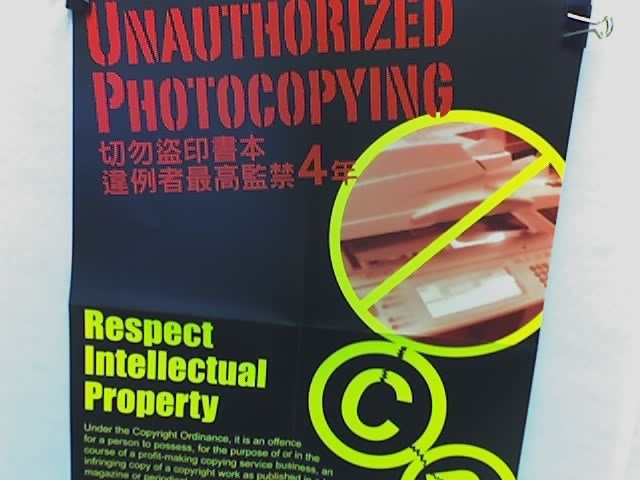|
current posts | more recent posts | earlier posts Elsevier is a publisher which now owns the rights to most academic journals. This has been a sore point in the academic community for a long time. In effect because of the way copyright works, they own the rights to a large fraction of existing scientific publications, as well as the names (and reputations) of journals. Their business model is one of squeezing libraries for high subscription prices usually for a package of journal, including one reputable one, and a lot that are not so much so. You can read about efforts by economists in general and Ted Berstrom in particular to end this situation here. There are two key points: first Elsevier makes articles expensive and difficult to access. Second, they recognize that they are a dying industry - the model of authors, editors and referees providing their services for free and Elsevier collecting from the libraries is obsolete now that redistribution is possible via the web. So (smartly from their point of view) they are squeezing out the last drops of blood. But it is worse than that - they apparently have a new business model in which they are paid by lobbyists to create fake journals to publish articles supporting the lobbyists point of view. You can find detail on the Economic Logic Blog, [Posted at 05/21/2009 05:37 AM by David K. Levine on Blocking Technology  comments(0)] comments(0)] Nicholas Gruen has a post about social interaction and the web 2.0. I'm doubtful that creation and innovation can ever be a purely social enterprise (I'm an economist after all) - but it would be a mistake to underestimate the strength of free software type approaches to knowledge. While the core workers are well-paid, creation benefits enormously from the contributions of volunteers. The ability to tap into those who work for love rather than money as well as those who work for money is a great strength of the non-IP model of creative innovation. [Posted at 05/21/2009 05:22 AM by David K. Levine on Philosophy of IP  comments(3)] comments(3)] One of the more scandalous forms of patents are patenting portions of the human genome. The BRCA1 and BRCA2 genes are known to be correlated with breast cancer in women. Unfortunately they have been patented by Myriad Genetics who take the idea of monopoly seriously - leading to a stoppage of genetic research in this area, as well as restricting access to genetic tests for breast cancer. Researchers - and women - finally got fed up with this and filed a lawsuit against the patent. You can find the complaint here. The plantiffs include the ACLU, the Association for Molecular Pathology, The American College of Medical Genetics, The American Society for Clinical Pathology, the College of American Pathologists and a number of individual researchers and women. Steve Silberstein draws our attention to The New York Times coverage.
In light of empirical evidence that patents do little to encourage or discourage innovation, I'm sometimes asked - why should we get rid of them? They don't seem to do any harm. If you'd like to see what harm they do, read the complaint. [Posted at 05/21/2009 03:33 AM by David K. Levine on IP versus Research  comments(10)] comments(10)] Spotted over the xerox machine in the economics department office at Hong Kong University of Science and Technology

[Posted at 05/21/2009 03:21 AM by David K. Levine on IP as a Joke  comments(1)] comments(1)] [Posted at 05/09/2009 09:42 AM by John T Bennett on Financial Crisis  comments(0)] comments(0)] (Strictly speaking this should have been Stephan's post, but he seems to have handed it off to me.) Disagree with my view below that copyright is absurd? Wondering what would happen to the movie industry without copyright? Luckily the marvelous Mike Masnick manage to answer both questions in a single post. If you still don't believe, go take a look at Star Wreck. [Posted at 05/06/2009 11:53 AM by David K. Levine on User Innovation  comments(1)] comments(1)] Alexandre de Ridder sends along a couple of links. The first is a speech by Eben Moglen Freeing the Mind: Free Software and the Death of Proprietary Culture. The second is a piece called The Absurdity of Copyright by a fellow named Dr.Godfried-Willem RAES. Now the interesting thing is that while both agree (as do I) that copyright is an absurdity - I think that the Free Software people have it right, and I'm less sure about Dr. Raes...let me quote the part that makes me doubtful. Dr. Raes starts from the following thought:
Information cannot be possessed. It is not property since it cannot be taken away. It is object nor energy, but essentially form.
I don't really want to debate that point; it is true or false depending on what you mean about information. Specifically: it seems to be true of information in the abstract, but not in the concrete. That is, the statement would seem to be true of the fundamental theorem of calculus - and equally false when applied to any specific copy of the fundamental theorem of calculus (embodied in a book, in the head of a specific person, etc.) My point is simply that abstract information is irrelevant - and copies of ideas are pretty ordinary as economic commodities go, subject to quite ordinary profit and loss calculations. And here is where I think the Free Software people have the key point - in the ordinary profit and loss calculation, copies probably aren't that valuable, and in the future it will be the market for services that counts.
[Posted at 05/06/2009 11:48 AM by David K. Levine on Against Monopoly  comments(1)] comments(1)] Andrés Bucio of the School of Environmental Sciences at University of East Anglia has been contrasting environmental policy (not enough property) with IP policy (too much property). He's started the Intellectual Footprint blog on the topic. [Posted at 05/06/2009 11:33 AM by David K. Levine on Blogroll  comments(0)] comments(0)] Andrés Bucio of the School of Environmental Sciences at University of East Anglia has been contrasting environmental policy (not enough property) with IP policy (too much property). He's started the Intellectual Footprint blog on the topic. [Posted at 05/06/2009 11:32 AM by David K. Levine on Blogroll  comments(0)] comments(0)] [Posted at 05/02/2009 11:13 AM by David K. Levine on Was Napster Right?  comments(0)] comments(0)] current posts | more recent posts | earlier posts
|

 comments(0)]
comments(0)]  comments(3)]
comments(3)]  comments(10)]
comments(10)] 
 comments(1)]
comments(1)] 
 comments(0)]
comments(0)]  comments(1)]
comments(1)]  comments(1)]
comments(1)]  comments(0)]
comments(0)]  comments(0)]
comments(0)]  comments(0)]
comments(0)] 
